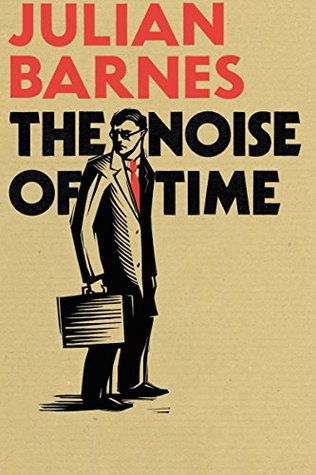More on this book
Community
Kindle Notes & Highlights
Stalin loved Beethoven because he was a true revolutionary, and because he was exalted, like the mountains. Stalin loved everything that was exalted, and that was why he loved Beethoven. It made his ears vomit when people told him this.
Tanya had laughed at his threats; his mother and Nita had taken them seriously.
Machiavelli said that you should never trust an exile.
Always, the tweed-clad exile was there with a lighter, clicking it smoothly under his nose, as if to say, Jump Thru The Window and you can have a nice shiny lighter like mine.
Music is not
like Chinese eggs: it does not improve by being kept underground for years and years.
It had been a betrayal. He had betrayed Stravinsky, and in doing so, he had betrayed music. Later, he told Mravinsky that it had been the worst moment of his life.
Akhmatova said that under Khrushchev, Power had become vegetarian.
He swam in honours like a shrimp in shrimp-cocktail sauce. And he hoped to be dead by the time 1976 came around.
Perhaps courage was like beauty. A beautiful woman grows old: she sees only what has gone; others see only what remains.
and six Stalin Prizes round his neck and ate in the restaurant of the Union of Composers.
What could be put up against the noise of time? Only that music which is inside ourselves – the music of our being – which is transformed by some into real music. Which, over the decades, if it is strong and true and pure enough to drown out the noise of time, is transformed into the whisper of history. This was what he held to.
He had always wanted, very specifically, a Mercedes.
Somehow, that was typical of Prokofiev. He always came at the world from the wrong direction.
as a pig knows about oranges, was persuaded to invite the famous exile to return for a visit.
He swam in honours like a shrimp in shrimp-cocktail sauce.
This was what life consisted of, once you got past the part where everything smelt of carnation oil. For instance, one partner might practise Free Love while the other looked after the children.
chauffeur was not the problem either. The problem was the Buick. A. had bought the Buick from a repatriated Armenian.
There were chauffeurs so successful that they
had their own chauffeurs. Were there composers so successful that they had others to compose for them?
panicked. Well, that was nothing new.
‘Well, you cannot become chairman of the Union without joining the Party. It would be against all constitutional rules. Of course you knew that. It was why you hesitated.
‘Then let me reply to you as one practical man to another. I have always said, and it has been one of the fundamental principles of my life, that I would never join a party which kills.’
His friend Slava Rostropovich maintained that the greater the artistic talent, the better able it was to withstand persecution.
He sent a telegram saying he was unwell and regrettably unable to attend his own execution.
To him, this was like drinking mineral water instead of Stolichnaya vodka, export strength.
But there had been more to the match than the result; it contained an example of the filth that pervaded everything under tyranny. Bashashkin and Bobrov: both in their late twenties, both stalwarts of the team.
Khrushchev’s stooge?
He wanted things to chime together. That was his fundamental nature.
Nezhdanova Street.
Perhaps this was one of the tragedies life plots for us: it is our destiny to become in old age what in youth we would have most despised.
The story’s almost biblical moral is this: ‘He who has talent in him must be purer in soul than anyone else.’
was null and void; secondly, that the girl’s virginity was officially restored. Anything was possible in the homeland of elephants. But even so, he did not think there was a ruler, or a miracle, that could restore his virginity.
But it was a novelty for him to have a wife who loved both music and domesticity, and who was as practical and efficient as she was adorable. He became shyly, tenderly uxorious.
A soul could be destroyed in one of three ways: by what others did to you;
by what others made you do to yourself; and by what you voluntarily chose to do to yourself. Any single method was sufficient; though if all three were present, the outcome was irresistible.
All his life he had relied on irony. He imagined that the trait had been born
in the usual place: in the gap between how we imagine, or suppose, or hope life will turn out, and the way it actually does. So irony becomes a defence of the self and the soul; it lets you breathe on a day-to-day
If you turned your back on irony, it curdled into sarcasm. And what good was it then? Sarcasm was irony which had lost its soul.


